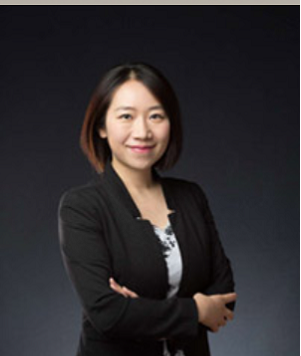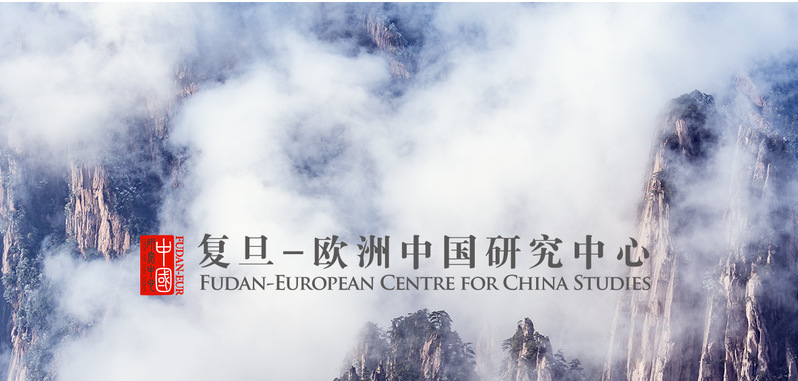作者: 发布时间:2021-11-18 来源:复旦发展研究院+收藏本文

FECCS invites to a digital roundtable discussion on Chinese and European Research Perspectives on Academic Collaboration.
Time and place:Nov. 29, 2021 9:00 PM-10:45PM (Beijing Time), Digital event, registration link below
The People´s Republic of China and Europe have a long history of scientific and scholarly cooperation. In recent years, as China has become an ever stronger science superpower, and as international relations are in the process of shifting, academic cooperation has also come into the spotlight of general public interest.
The benefits and risks of scientific collaboration between the two sides are now more openly debated and weighted. But what insights have been generated about the forms, effects, challenges and dynamics of Sino-European academic collaboration from a research perspective, i.e. in analyses that go beyond daily sensational reporting and anecdotal evidence? In this short bilateral seminar, we will present different research-based approaches to the topic of China-Europe academic collaborations, and facilitate a discussion among panelists and the audience.
Discussion will be moderated by Vice-rector for climate, environment and cross-disciplinarity Prof. Mette Halskov Hansen.
Zoom link to the roundtable discussion will be sent with registration confirmation.
Programme
9:00PM-9:05PM Opening by the organizers
Panel I
9:05PM-9:20PM
Anna Lisa Ahlers Bridging public debate and social science research on Chinese-European academic collaboration
Public debate in Europe and North-America about scientific cooperation with the People’s Republic of China is becoming increasingly polarized; as part of it established partnerships are being questioned and new agreements are put on ice. Statements within the scientific community on how to manage collaboration in the future often read quite differently. At the same time, it becomes clear that especially the European side lacks insights into the Chinese science system and academia in general, and that there are hardly any in-depth and systematic assessments of the differences and similarities in the expectations of the cooperating partners. Against this background, the talk will point to some new avenues of qualitative social science research that are as much of a scholarly interest as they may also aid public debate and practical cooperation between the two sides.
9:20PM-9:35PM
Li TANG U.S.-China Tensions and People Mobility
Deteriorating relations between the United States and China since 2018 have extended to education and scientific research arenas. Using novel international aviation data, we assess the impact of U.S.-China tensions on people inflows from China to the U.S. through the lens of monthly air passenger traffic data. Our findings offer updated evidence on the detrimental effect a hostile political climate could have on international people mobility and research engagement between two major scientific powers. The implications to China-European research collaboration will also be discussed.
9:35PM-9:45PM Panel discussion
Panel II
9:45PM-10:00PM
Andrea Braun Střelcová The development of EU-China research policy: A historical overview and current challenges
This work attempts to answer two research questions: 1) How has the research policy in Europe towards China evolved since the 1980s? and 2) What were its main challenges in the past and how do they relate to the present? By answering these questions, the work highlights the step changes Europe (at the EU level and in selected European countries) has gone through in its policy towards China in research collaboration over the recent decades, along with the overall development in the political priorities between Europe and China. The paper, which is a work in progress, also discusses the most recent developments before and after the Covid-19 pandemic. The study applies a qualitative method so far, mainly by analysing secondary data, such as interviews with officials, academic literature, governmental policy documents and strategy papers.
10:00PM-10:15PM
Meijun LIU Further divided gender gaps during the covid-19 pandemic: leadership, collaboration, and impact
The COVID-19 pandemic and associated disruptions have brought about multifaceted impacts on international scientific collaboration, including those between China and Europe. Based on publication data on coronavirus-related fields, this study explores the evolution of gender inequalities regarding productivity and collaboration before and during the COVID-19 period by comparing females’ and males’ performance concerning productivity and three aspects of collaboration, i.e., leadership in teams, gender composition of team and team performance. Our results indicate a further divided gender imbalance regarding productivity and important aspects of collaboration. Besides the enlarged gender gaps concerning research productivity, females’ less participation in teams as major contributors and less collaboration with their male colleagues also reflect their underrepresentation in science in the pandemic period.
10:15PM-10:25PM Panel discussion
10:25PM-10:45PM Q&A and discussion with audience and round-up
About the speakers

Anna L. Ahlers
Anna L. Ahlers is head of the new Lise Meitner Research Group “China in the Global System of Science” at the Max Planck Institute for the History of Science in Berlin. Her previous work on Chinese rural development and municipal pollution control provided inspiration for one of her current projects that studies the inclusion of scientific expertise in local policy-making in the PR China. With a big weakness for sociological theory, she is also generally interested in analyzing interactions of the science system and its societal environment in China more broadly.

Li Tang
Li TANG is a professor of public policy at the School of International Relations and Public Affairs, Fudan University. Dr. Tang’s research is focused on science, technology and innovation policy, mobility, and program evaluation. Her research has appeared in Nature, Science and Public Policy, Science and Engineering Ethics, among others. She is a co-inventor of the US granted patent “Identification disambiguation in databases”.

Andrea Braun Střelcová
Andrea Braun Střelcová is a PhD student at Tampere University, Finland, and a researcher in Dr Anna Ahlers’ group ‘China in the Global System of Science’ at the Max Planck Institute for the History of Science in Berlin, Germany. Her research is focused on higher education management, academic mobility and migration, and research policy in the context of EU-China relations.

Meijun LIU
Meijun LIU is an assistant professor at Institute for Global Public Policy, Fudan University. Her research foci include big data analysis and application, science of science, science and technology policy and music information retrieval. She is particularly interested in using large-scale datasets and data science techniques to explore how scientific collaboration and mobility influence research outputs and teams’ success, and collective music emotion during pandemics.

Mette Halskov Hansen
Mette Halskov Hansen is a professor in China Studies at the Department of Culture Studies and Oriental Languages and Vice-Rector for Climate, Environment and Cross-Disciplinarity appointed for the period August 2021-2025. Mette co-chairs the Steering Committee of FECCS at UiO. She has a doctoral degree from Aarhus University, Denmark. She has published widely on topics such ethnic relations and education in China, internal migrations to ethnic minority areas, processes of individualization, and, most recently, on the social, political and human dimensions of air and other forms of pollution in China.
Organizer


地址:上海市邯郸路220号智库楼
邮编:200433
电话:86-21-55670203
传真:86-21-55670203
电子邮箱:fdifudan@fudan.edu.cn
CopyRight©2007 复旦发展研究院版权所有 备案号/经营许可号:沪ICP备05006147号
